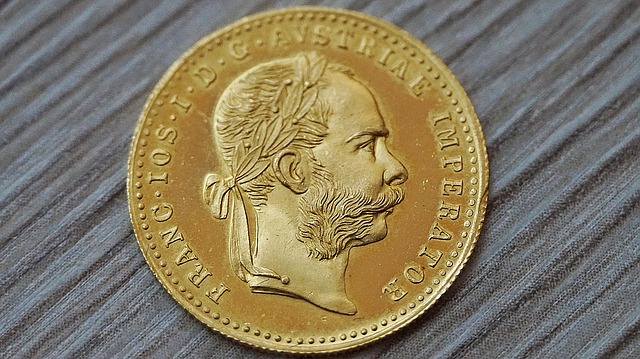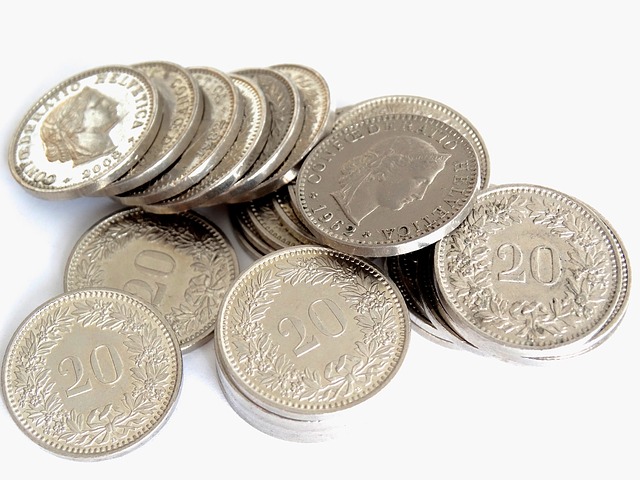Cryptocurrency Like Kind Exchanges: What Can We Learn From Gold?
The IRS grants tax relief for exchanges of Like Kind property. With all the various Bitcoin, tokens and Altcoins, could this relief apply to crypto? Let’s see how gold is treated, and then let’s discuss!
Cryptocurrency Like Kind Exchanges: What Can We Learn From Gold? (C.T.B. Part 1a Appendix C)
General Rule for Exchanging Crypto
Generally, when property is exchanged for new property, there is a taxable gain if the new property is worth more than the cost of the old property (basis). The IRS confirms the rule applies to Bitcoin and other “convertible virtual currencies” aka CVC’s (Notice 2014-21, Q&A 6).
Would it be nice if a gain happened, but we wouldn’t have to pay tax on the gain right away, because we were simply continuing our initial investment in an altered state? The Congress/IRS created a Like Kind exchange rule which makes this possible.
Like Kind Exchange Rule
“Like Kind exchange” a simple rule, but each requirement has its own complexities.
A Like Kind exchange occurs if the property given up (Old Property) and the property received (New Property) are both (1) a qualified type of property and (2) meets the “Like Kind” definition. If Like Kind treatment applies, no gain is recognized by person giving up the Old Property, and cost basis in the Old Property transfers to the New Property (See Section 1031). The gain is instead recognized in the future if/when the New Property is later sold/exchanged.
Special rules apply if cash/non-Like Kind property is received in addition to the New Property. Also, for a valid Like Kind exchange, there are requirements that the “New Property” will be identified in writing within 45 days of giving up the Old Property; and the New Property must be received within 180 days (or, if earlier, the tax return due date for the person giving up the Old Property).
What is Qualified Property?
Qualified property is investment property or property used in a trade/business, unless disqualified. There is a list of nonqualified property provided in the Code/Regulations (inventory, stocks, other securities and more). As of Notice 2014-21, Bitcoin/CVC is not a classified as a “currency”, and there seems to be no indication yet that Bitcoin is a “security” (other than certain token ICO’s designated by the SEC). Thus, it is possible BTC/Altcoins would qualified property, pending further guidance. Note: In my recent article on ICO’s, it is discussed, if ICO tokens are designated as securities, the exchange would potentially not be of qualified property due to the security classification.
A person holding and speculating on the increase in value of Bitcoin and CVC’s could reasonably determine to be holding it as an “investment”, as long as the BTC is not used for personal transactions. Therefore, let’s move on to the more complicated issue, whether the exchange of Bitcoin for Litecoin, etc. is an exchange that is “Like Kind.”
What is Like Kind Property?
The definition of Like Kind is clear but its application is a challenge. Like Kind means the New Property received is of the same nature or character of the Old Property, and this conclusion is not based on grade or quality of the property (regulation 1.1031(a)-1). The IRS also provides what would seem to be a broad definition in Publication 544. Not too much reliance should be given on IRS publications, they are not the law and often address only the simplest of situations. Here is their example:
‘…The exchange of real estate for real estate and the exchange of personal prop¬erty for similar personal property are exchanges of like¬kind property. For example, the trade of land improved with an apartment house for land improved with a store building, or a panel truck for a pickup truck, is a like¬kind exchange.” https://www.irs.gov/pub/irs-pdf/p544.pdf “
What happens if Old Property is sold for Cash, then Cash is used to buy New Property?
If a U.S. person receives cash (USD) from selling Old Property, and then turns around and buys New Property with the cash, this is not a Like Kind exchange. However, the IRS will allow for exceptions where a third party or agreement is used to hold the cash in between the exchange; these are complicated and potentially an expensive undertaking relative to the value of the investment (a like kind exchange should be done with an advisor):
Are Cryptocurrencies considered “Like Kind?”
How could we determine that BTC is the name nature or character as another Altcoin? Isn’t the original thesis that brings Altcoins/Tokens into existence, the argument that the Altcoins/Tokens are necessary for a different or better functionality/scalability? Let’s see how the IRS viewed exchanges of precious metals, and then return to this question.
Ok – Tell me about the Gold!
The IRS issues revenue rulings to demonstrate how tax laws should be applied to complex situations. Because there were many different forms of investing in gold, the application of Like Kind exchange to gold was unclear historically; resulting in the IRS issuing many different rulings. Note: regarding discussion in the prior section above receiving “money” as complicating a Like Kind exchange, gold in these rulings are not treated as property, money (i.e. a quarter/nickel/dime) because the gold content value was so high.
In Revenue Ruling 76-214, discontinued gold coins in Mexico (“old” coins) were exchanged for Austria gold coins (“new” coins); each of the old/new coins were discontinued, not in circulation. The same underlying gold content was exchanged, and the value of each was determined based on the gold content value. Therefore, the exchange was honored as a Like Kind exchange by the IRS.
In IRS Revenue Ruling 79-143, the “old” gold coins, which were valued based on their collectible value (“numismatic” coins), were exchanged for “new” gold coins for which the value was based on the gold content. The IRS determined this was not a valid Like Kind exchange because the two properties were valued based on a different underlying investment, even though both Old and New Properties were gold!
In IRS Revenue Ruling 82-96, “old” gold bars (“bullion”) were exchange for “new” gold coins from Canada, and the value of both the “old” and “new” coins was based on the underlying investment in the value of gold. Although the “new” gold coin was a Canada coin in circulation, its gold content value largely exceeded the legal tender amount; therefore it was treated as property for the Like Kind rules. The coin was also not a collectible. Therefore, the exchange was honored as a Like Kind exchange.
In Revenue Ruling 82-166, “old” gold bars (“bullion”) were exchanged for silver bars for investment purposes. The IRS ruled that the value of silver and gold are determined on the basis of their metal content, but this wasn’t enough to be Like Kind. According to the IRS, while the gold and silver metals have similar uses and qualities, gold and silver were each used in much different ways in the world; gold is normally an investment where silver is normally used as an industrial commodity. Therefore, the IRS ruled that the exchange was not a Like Kind exchange.
Gold Rulings in Context – Bitcoin vs. Ethereum
Investopedia wrote a quick summary article comparing Bitcoin to Ethereum (linked below). According to the article, Bitcoin is a medium of payment, while Ethereum is more than just a currency; it is a platform. This sounds similar to the gold vs. silver ruling above (RR 82-166), where gold is an investment, silver is used for industrial purposes.
Would we run into a Like Kind issue where the underlying purpose of holding/using Ethereum could be much different than Bitcoin, depending on the user?
Gold Rulings in Context – Bitcoin vs. Litecoin
In another article, Investopedia highlights the differences in Bitcoin/Litecoin being the processing speeds and underlying Algorithm (among other discussions). Also, the article seemed to describe Litecoin to be the “silver” to Bitcoin’s “gold”.
http://www.investopedia.com/articles/investing/042015/bitcoin-vs-litecoin-whats-difference.asp
Despite these differences, could it be argued that Litecoin is the same underlying value as Bitcoin, and the only differences are really the quality/grade (which is ok for Like Kind)?
Takeaway - I need your help
If you have followed me this long, you probably figured out that I understand taxes but I quickly admit I am not a Bitcoin or Altcoin expert. I understand what I read from secondary sources, but my knowledge will quickly reach limitations in understanding the full scope of Bitcoin, let alone the various Altcoins and Tokens. Please let me know what you think regarding Bitcoin vs. Ethereum, and Bitcoin vs. Litecoin in the context of a Like Kind exchange?
Please also let me know what you think regarding Bitcoin vs. Steem, Steem vs. Steem Dollars, and Steem vs. Steem Power. Part 2 of this article will discuss like kind exchange in the context of the Steem currencies.
Disclaimer
Disclaimer: This series contains general discussion of U.S. taxes in a developing and unclear area of tax law. As always, you should consult your own tax advisor in your jurisdiction to determine your specific situation as this is not personal advice; and consider any future guidance by the Congress/IRS after the date of this article. Under Circular 230 to the extent it applies, this article cannot be used or relied on to avoid any tax or penalties in the U.S., its States or any other jurisdictions.
Photo Credit
https://pixabay.com/en/users/PublicDomainPictures-14/
https://pixabay.com/en/users/PIX1861-468748/
https://pixabay.com/en/users/422737-422737/



love it!
Thank you!
Great article, I had no idea what Like-Kind was or that the IRS even addresses such a scenario. Should be interesting to see how this develops as the IRS addresses direct trades between Ethereum/Bitcoin or Litecoin/Bitcoin.
@originalworks
The @OriginalWorks bot has determined this post by @cryptotax to be original material and upvoted it!
To call @OriginalWorks, simply reply to any post with @originalworks or !originalworks in your message!
To nominate this post for the daily RESTEEM contest, upvote this comment! The user with the most upvotes on their @OriginalWorks comment will win!
For more information, Click Here!
Great post..thanks @cryptotax!
I love this post thank you for being very thural and you have a very good point
Thanks
Based on this current market...I may not have any gains to worry about!
From my perspective as a Crypto Nerd, Bitcoin and Litecoin aren't all that different. They basically are both magic internet money. Essentially, both have the same value proposition: you can send someone some digital cash anywhere in the world.
Ether is more like digital oil than digital gold, since its value depends primarily on using ether for various dapps. I would call that a significant difference.
What I would like to know is whether trading one turing complete currency such as ether for another turing complete currency (such as an Ethereum clone/fork or, maybe someday, EOS)would be close enough for a like-kind exchange. After all, the tokens provide access to different ecosystems.
See also: forks of various coins. Trading bitcoin for bitcoin cash seems to have a good argument for being a like-kind exchange, since they are almost identical. (Well, ETH vs. ETC would be a better comparison, perhaps.)
Thanks @smithgift, great point about hard forked currencies. An exchange of BTC for BCH outside of the context of receiving the second currency on August 1st hard fork is an interesting issue that deserves more attention, because they are derived from the same history and are similar (you can probably articulate better than me in this subject). That deserves some attention in my Part 2 of Like Kinds.
It seems we are on the same page with Litecoin/Bitcoin and Ether/Bitcoin, great to have a confirm.
Do you have any thoughts on the various Steem currencies?
Fascinating and frustrating...really highlights the complexity and insanity of tax law...most of us "regular" folks would just assume that swapping a gold coin for a few silver coins would be a "like" kind of thing ...but no...the government with all its resources can pay people to come up with crazy technical arguments that tell us because silver can be used for industrial purposes...you lose out...like you are going to melt down your collectible silver coins to solder a few wires together...then again...the government tells us that a car can't be similar to a truck...of course...that law was probably in court before trucks had back seats installed for the kids and SUV's were invented...
Personally I'd rather you didn't have people write in to describe the technical aspects of each coin...you may be doing the work for the government...and imagine if the government decides to come up with a list trying to match every possible trade combination for every coin to decide if their technological uses were similar enough to be considered "like kind"...people will have enough trouble just trying to track their trades...
Fellow traders...we need to take the initiative and contact our congress people...don't kid yourself...if you trade regularly...theres a lot of money at stake...I think if it involves use of blockchain...its similar...frankly I don't know one from the other...its not why I invest...and do you want to pay tax on a coin to coin transaction in an exchange you can't even convert to dollars?
Thanks crypto tax for enlightening us...sorry to take up so much space...but this issue really burns with me...
Thanks @bobreedo, no worries on the post length, I sincerely appreciate the curation of my blog, take as much space as you need. I totally agree about the silver point, the taxpayer in the ruling didn't seem to be proceeding with a gold for silver swap in order to use silver for a non-investment purpose, so why should the common use of silver for industrial reasons in this context matter! I will re-read to make sure I didn't miss anything here, but the ruling explanation seemed counter-intuitive to me other than the fact gold does not equal silver which might trump the whole argument.
By the way, the IRS should be thrilled that we are even attempting to make sense of these issues in time for filing season, let alone ignoring them altogether (many crypto-involved US taxpayers are left without any direction, absent any new helpful guidance from the IRS at this point). But I agree, let's keep it high level and not give only the IRS their strongest point to contest like kind with a ribbon & a bow; and instead let's explore both sides in a general context, taxpayer and IRS.
Notice 2014-21 invites U.S. taxpayers to comment on the notice. The AICPA already responded on behalf of the U.S. taxpayers for certain considerations, but they don't go to the Steem level to address Steem-specific issues, and their response was long before the Bitcoin cash hardfork. I wonder if our community should write a letter.
Congratulations @cryptotax! You have completed some achievement on Steemit and have been rewarded with new badge(s) :
Click on any badge to view your own Board of Honor on SteemitBoard.
For more information about SteemitBoard, click here
If you no longer want to receive notifications, reply to this comment with the word
STOP@cryptotax got you a $1.62 @minnowbooster upgoat, nice! (Image: pixabay.com)
Want a boost? Click here to read more!